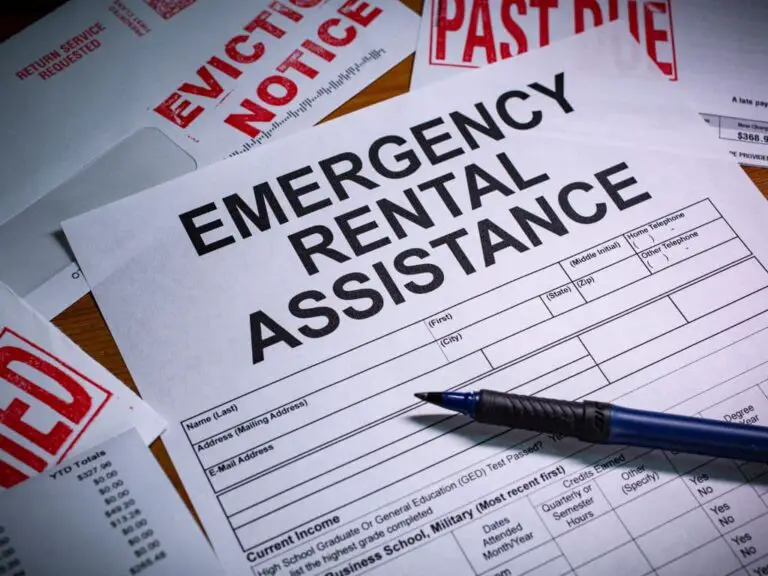Long Term Care vs. Extended Care: Understanding the Differences
Long term care and extended care are two types of care services that provide assistance to individuals who need help with daily activities. Choosing between long term care and extended care can be confusing, but understanding the key differences between the two can help make the decision easier.
The main difference between long term care and extended care lies in the duration and purpose of services. Long term care provides medical, social, and personal care for an extended period to individuals with chronic illnesses or disabilities. In contrast, extended care offers short-term medical and rehabilitative services to individuals recovering from a hospital stay.

What Is Long Term Care?
Long term care refers to a wide range of services that provide medical, social, and personal care over an extended period of time to people who have a chronic illness or disability. Long term care aims to help people who need assistance with everyday activities and health care.
Long term care can be provided in various settings including the person’s home, assisted living facilities, adult day care centers, or skilled nursing facilities. It may include services such as help with activities of daily living (bathing, dressing, eating), medical services, physical therapy, monitoring health issues, administering medications, as well as social services.
Long term care is generally meant for a prolonged period ranging from several weeks to years based on the individual’s needs and condition. It is often required for elderly people as they become more frail or people with progressive illnesses such as Alzheimer’s disease or Parkinson’s disease.
What Is Extended Care?
Extended care provides medical care and rehabilitative services for a short period of time to individuals recovering after a hospital stay. Extended care is meant for those who no longer require acute medical care but still need extra time to recover and regain their health or ability to function independently.
Extended care services are often provided after a major surgery, injury, or acute illness once a person is medically stable. Extended care facilities include skilled nursing facilities, inpatient rehabilitation centers, and subacute care units. Services focus on providing nursing care, physical therapy, occupational therapy, speech therapy, and other rehab services.
The goal of extended care is to help individuals complete their recovery and transition back to living independently or into long term care arrangements if needed. Stays are typically shorter, ranging from a few weeks up to 100 days based on a patient’s recovery progress.
The Key Differences Between Long Term and Extended Care
While long term care and extended care share some similarities in the services provided, there are several key differences that set them apart:
1. Duration of Care
- Long term care is meant for long periods ranging from weeks to years.
- Extended care is short term, lasting weeks to months.
2. Types of Services Provided
- Long term care provides custodial, personal and social care.
- Extended care focuses on skilled nursing and rehabilitative therapies.
3. Cost and Payment Options
- Long term care may be covered by private insurance or public programs.
- Extended care is typically covered by health insurance or Medicare.
4. Eligibility Criteria
- Long term care depends on level of assistance needed.
- Extended care depends on medical necessity for skilled services.
5. Setting of Care Delivery
- Long term care can be provided in various settings.
- Extended care is generally delivered in a skilled nursing facility.
The Similarities Between Long Term and Extended Care
Though there are distinct differences, long term care and extended care also share some commonalities including:
- Both provide assistance with activities of daily living.
- Nursing care and monitoring is a component of each type of care.
- Rehabilitative therapies like physical therapy may be utilized in both long term care and extended care.
- Social services are available in both long term and extended care settings.
The level and duration of services provided differ based on an individual’s specific needs and care plan.
Who Needs Long Term or Extended Care?
Long term care is generally meant for seniors, people with disabilities, or individuals with chronic or progressive illnesses who need ongoing assistance. Extended care is appropriate for those recovering after a hospitalization who still require skilled nursing services and rehab.
Factors like diagnosis, severity of illness, recovery time, independence level, and availability of caregivers help determine if long term or extended care is most appropriate. A complete assessment by medical professionals can guide the decision.
How to Choose Between Long Term and Extended Care
When choosing between long term care and extended care, considerations include:
- Doctor recommendations based on condition and prognosis
- Expected length of time care will be needed
- Level of care required – skilled nursing or personal care assistance
- Goals for recovery and rehabilitation
- Cost and insurance coverage
- Individual preferences for setting and type of care
Discussing options with healthcare providers and family members can help evaluate the best solution for each situation. The choice depends on aligning medical needs with the services offered by each care option.
What Are the Pros and Cons of Long Term Care?
Pros
- Provides custodial care and assistance with daily activities long term
- Can support people in living independently longer
- Gives families respite from caregiving responsibilities
- Offers social engagement and monitored care
- Can be provided at home or in various facility settings
Cons
- Is often expensive with high out-of-pocket costs over time
- May require moving to a facility away from home
- Quality of care can vary between providers
- Rural areas may lack options and access
What Are the Pros and Cons of Extended Care?
Pros
- Focuses on medically necessary skilled nursing and rehab services
- Provides 24/7 nursing care and monitoring
- Is covered by Medicare or health insurance for limited time
- Helps transition people back home after hospital stay
Cons
- Is for short term recovery so not a long term solution
- Care may feel impersonal in facility setting
- Patient may not return to prior level of functioning
- Bed availability can be limited
How to Plan for Long Term or Extended Care?
Planning ahead is important when considering potential long term care or extended care needs. Steps to take include:
- Research costs and insurance options in your state
- Consider long term care insurance or life insurance hybrid policies
- Look into reverse mortgages or Medicaid eligibility
- Discuss care preferences and goals with family
- Maintain health through exercise, nutrition, medical care
- Develop savings for future care expenses
Discussing plans with a financial advisor or social worker can provide guidance to prepare for care needs and make the process smoother when care becomes necessary.
Making informed decisions about long term versus extended care involves understanding the key differences between the two types of services. Considering duration of care, services provided, costs, eligibility, and settings can help determine the most appropriate option when care is needed. Consulting medical experts and planning ahead is vital to getting the required services and quality care for each unique situation and individual.
Frequently Asked Questions
-
How do you know when it’s time to move to assisted living?
There are clear signs that it is time for assisted living. These include a worsening medical condition, increased falls, and general frailty. Difficulty in managing your finances, or any other financial problems.
-
Can you take someone out of a nursing home for a day?
Answer. Answer.
-
What is the purpose of atria?
The three functions of the atria during different phases of the cardiac cycles are: Serving as a reservoir in systole and passive conduit in early diastole.
-
How many locations does Atria Senior Living have?
After the New Senior transaction, Atria Senior Living has become a leader in independent living, assisted and supportive living communities. It currently serves more than 200 locations across 28 US states and 7 Canadian provinces.
-
Who founded Atria?
Atria was founded in 1996 by Vencor, which had its senior living facilities and assisted living units, into Atria Communities, Inc.
-
What is the difference between extended care and long-term care?
Seniors in Care Levels are often referred to by other names such as extended care facilities or long-term homes. They offer high quality medical care. This level of care is for people who are unable to take care of themselves. They often require monitoring and care 24 hours a day.
-
At what point do dementia patients need 24-hour care?
Alzheimer’s disease can lead to a loss of control and inability to perform daily tasks. These people require 24-hour supervision and care. These patients are less able to communicate with others, including to tell them they’re in pain. They also are more susceptible to infection, particularly pneumonia.
-
What does it mean if your left atrial is enlarged?
Learn more about left atrial enlargement. Left atrium swelling (LAE), is the condition where the left side or heart expands. This condition is common in those with heart valve problems and high blood pressure. As a treatment for symptoms, doctors will try to determine the root cause.
-
What do you call a person with no family?
Orphaned could also be used (with the words “completely” and “truly”. This word could also be used to describe the absence of any relatives or guardians, and the absence of parents. truly orphaned.
-
Who is buying Atria Senior Living?
Ventas (NYSE : VTR), announced Friday that it had agreed to purchase all real estate assets from privately owned Atria Senior Living Group. This $3.1 billion cash-and-share deal will make Ventas the largest U.S. seller of senior housing communities.
-
Can someone with dementia be forced into a care home?
For people with serious health conditions, such as dementia, they may need to be admitted to a nursing home or care home. This will ensure they receive the best care and supervision possible.
-
How many locations does Benchmark Senior Living have?
About Benchmark There are 63 communities in Massachusetts, Connecticut Connecticut, New Hampshire Rhode Island, New York, Vermont and Maine. Benchmark has nearly 6,000 employees in its community offices and the corporate headquarters.
-
How often should nursing homes change diapers?
Incontinence and diaper changes in nursing homes Usually those suffering from urinary incontinence need their diapers changed between 5-8 times per day.
-
Which state has the most assisted living facilities?
According to the Centers for Disease Control and Prevention data, Washington and Oregon have some of the highest residential care usage rates in the country.
-
What are the two atria?
The human heart has two atriums. One receives blood through the pulmonary circulation and one receives it from the systemic circulation.





